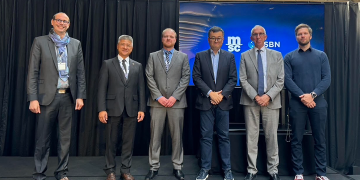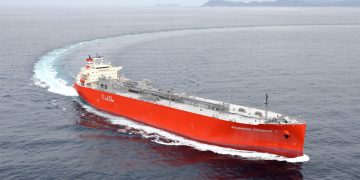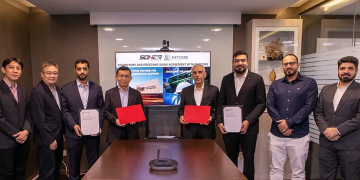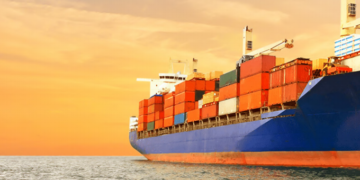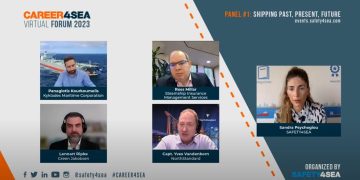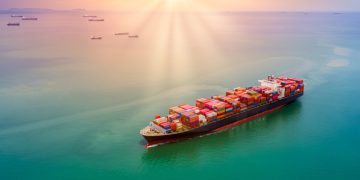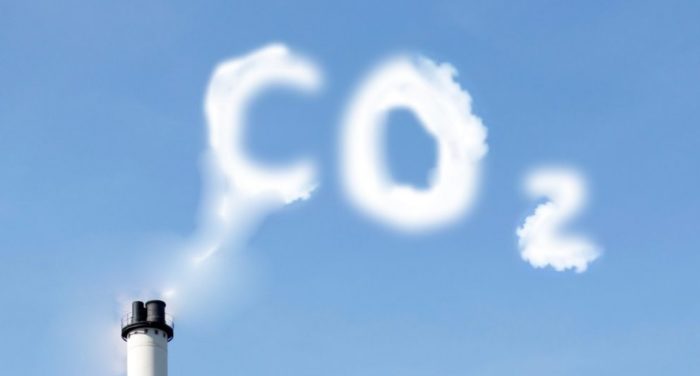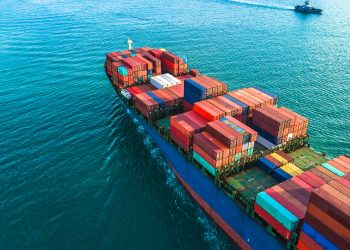In an exclusive interview with SAFETY4SEA during SMM 2018, Mr. Eirik Nyhus, Director, Environment, International Regulatory Affairs, DNV GL notes that electrification is going to be a key element to move forward the sustainability space. Definitely decarbonization is the number one challenge for the industry, Mr. Nyhus comments, citing three key elements to accelerate pace. He concludes that climate change is the key driver for more action, meaning that policy makers ‘have to actually start today’ and not wait till 2023!
SAFETY4SEA: How your organization may contribute toward sustainability? What are your plans to move forward?
Eirik Nyhus: DNV GL has been active in the sustainability space for a long time. In the maritime, oddly we don’t like to focus on what we have been doing on LNG over the years and our part in making LNG a viable technical solution. These days there is a lot of work being going on with batteries and the battery technology because we believe that electrification is going to be a key element to moving forward the sustainability space. That being said, I would also like to highlight that we are not only doing technical work, we also work in the policy space where we contribute to work at various levels of the UN and also various governments that are members of the IMO. We are essentially spread all over the sustainability space and doing our ‘bit’ to make the world move forward.
S4S: In your view, what would be the biggest shipping challenge in the years to come with respect to sustainable shipping for the industry stakeholders?
E.N.: There is a very simple answer to this: Decarbonization. Making the world shipping fleet fully decarbonized within this century is a massive challenge. Moving to a 50% reduction of CO2 emissions by 2050 is a really big challenge as well, although we will only get half way to the ultimate goal. To get there, we really need to work on three elements:
- We have to get efficiencies higher than they are today and roll out all the efficiency technologies that we are able to put in play
- We have to work on logistics in getting the chains optimized, that includes ports not only ships operating
- But, most importantly, we have to work on carbon neutral fuels. For shipping o reach its ultimate emission reduction goals, carbon neutral fuels are absolutely essential and have to be deployed. And that is where we really need to focus on in the years to come.
S4S: How do you believe the 2020 sulphur cap will impact the market?
E.N.: The 2020 cap is a very significant event and the key word I guess is ‘turbulence’. In the short-time, we will see shipping working very hard to be compliant because there will be all kinds of transition issues going forward. But that being said, shipping has shown its capacity and capability to adjust to radical changes earlier, so shipping is not going to stop. It is not as if shipping trade is going to grind to a halt. Shipping will move forward, we will adjust and we, as a community, will demonstrate our capability to deal with significant changes when they happen.
S4S: What are the key drivers for the decarbonization of the industry? What is the way forward?
E.N.: The big driver is of course climate change. But climate change is kind of big word. It has to be translated into something applicable to the industry. What this means for shipping is that we have two primary drivers responding to climate change: We have the regulators and policy makers which take their national goals to IMO and then we have what happens with the John Q. public, because there is such an increasing demand now these days for transparency. Transparency in shipping is something new customers are demanding from us. So transparency and policy makers response to climate change are the key drivers going forward. The way forward is that IMO needs to start working hard on its action plan: We have a goal, we have a vision, but we don’t necessarily know how to get there. We have many candidate measures on the table but we need to get those measures shorted and get high priority once implemented as soon as possible. And this cannot wait until 2023. We have to actually start today.
View herebelow the video interview with Eirik Nyhus, Director, Environment, International Regulatory Affairs DNV GL at SMM 2018, September 4-7, Hamburg, Germany.
The views expressed in this article are solely those of the author and do not necessarily represent those of SAFETY4SEA and are for information sharing and discussion purposes only.







